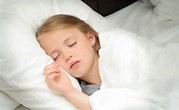This time of year with extra daylight and sunshine, it is difficult to resist packing in as much as possible after school---art shows, baseball games, playdates, dance recitals, special weekend activities....
It's important to keep in mind that even with our busy schedules, our children will continue to need the right amount of sleep in order to meet the daily demands of school and home. If anything, they need more, not less! A recent increase in behavioral symptoms in your child could be reduced by something as simple as putting her to bed 30 minutes earlier each night. Below is some important facts to consider about the impact of sleep of a child's academic, emotional, and behavioral functioning.
It's important to keep in mind that even with our busy schedules, our children will continue to need the right amount of sleep in order to meet the daily demands of school and home. If anything, they need more, not less! A recent increase in behavioral symptoms in your child could be reduced by something as simple as putting her to bed 30 minutes earlier each night. Below is some important facts to consider about the impact of sleep of a child's academic, emotional, and behavioral functioning.
Click here Did you know....
Factors that Affect Sleep
Quantity: Recommended Total Sleep for Each Age Group
Infants 14-15 hrs
Toddlers 12-14 hrs
Preschoolers 11-13 hrs
School-age Children (6-12 yrs) 10-11 hrs
Adolescents 8.5-9.5 hrs
The 30-60 minutes before bedtime
Start a routine of calming activities like bath, reading, etc. before bedtime. Avoid high energy activities, screen time, and food.
The sleep environment
Television in the bedroom, co-sleeping, and a hectic sleep environment impact quality and quantity.
Obstructive Sleep Apnea (OSA)
Your child’s sleep may be impacted by OSA if he is sleepy during the day, has difficulty getting up in morning, gasps for breath in sleep, breathes through mouth, sweats excessively during sleep, is a restless sleeper, or has headaches in the morning.
Resources: Laracy, Ridgard, and DuPaul, NASP Communique,2015; Owens, 2007; Steenari et al, 2003; Vriend et al, 2013; Curcio, Ferrara, and DeGennaro, 2006; Fredriksen, Rhodes, Reddy, and Way, 2004; Gregory, Van der Ende, Willis, and Verhulst, 2008; Robers, Robers, and Duong, 2008; Stein, Mendelsohn, Obermeyer, Amromin, and Benca, 2001; Roberts et al, 2008.
to edit.
- Sleep duration accounts for 64% in the variance in cognitive processes that are essential to academic functioning, including working memory, short-term memory, and attention.
- Decreased sleep quantity AND quality is associated with poorer procedural learning abilities and academic performance.
- Shifting children’s bedtimes later by one hour has been associated with fewer positive emotions and poorer emotional regulation within 4 days.
- Insufficient sleep is associated with higher rates of aggression, depressive symptoms, irritability, hyperactivity, accidental injuries, stressful parent-child relationships, and increased problems with interpersonal relationships.
- Insufficient sleep is associated with lower ratings of concentration, self-esteem, emotional/mental health,and life satisfaction.
- As many as 25% of children experience some sleep difficulty
- The prevalence of sleep difficulty is even higher for children with certain medical conditions or psychiatric disorders (i.e. pain, asthma, ADHD, Autism, depression, anxiety)
Factors that Affect Sleep
Quantity: Recommended Total Sleep for Each Age Group
Infants 14-15 hrs
Toddlers 12-14 hrs
Preschoolers 11-13 hrs
School-age Children (6-12 yrs) 10-11 hrs
Adolescents 8.5-9.5 hrs
The 30-60 minutes before bedtime
Start a routine of calming activities like bath, reading, etc. before bedtime. Avoid high energy activities, screen time, and food.
The sleep environment
Television in the bedroom, co-sleeping, and a hectic sleep environment impact quality and quantity.
Obstructive Sleep Apnea (OSA)
Your child’s sleep may be impacted by OSA if he is sleepy during the day, has difficulty getting up in morning, gasps for breath in sleep, breathes through mouth, sweats excessively during sleep, is a restless sleeper, or has headaches in the morning.
Resources: Laracy, Ridgard, and DuPaul, NASP Communique,2015; Owens, 2007; Steenari et al, 2003; Vriend et al, 2013; Curcio, Ferrara, and DeGennaro, 2006; Fredriksen, Rhodes, Reddy, and Way, 2004; Gregory, Van der Ende, Willis, and Verhulst, 2008; Robers, Robers, and Duong, 2008; Stein, Mendelsohn, Obermeyer, Amromin, and Benca, 2001; Roberts et al, 2008.
to edit.

 RSS Feed
RSS Feed